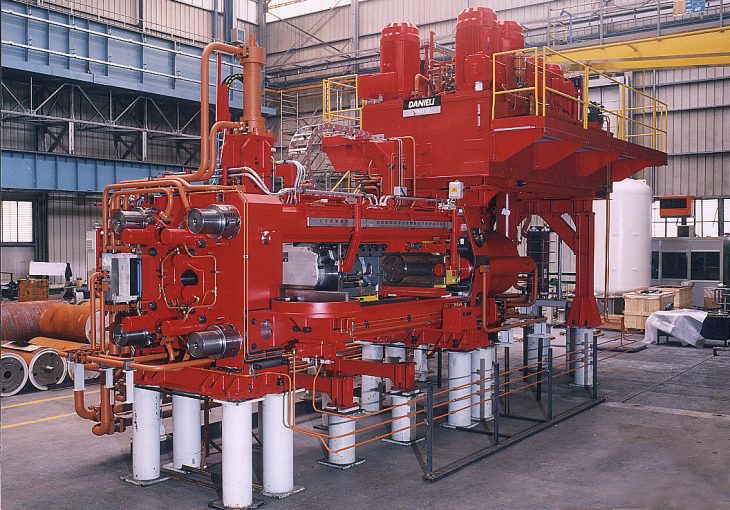Lightweight Innovations For Tomorrow (LIFT), a U.S. government enterprise and part of the National Network of Manufacturing Innovation (NNMI), has established a facility in Detroit, MI, to direct the development of advanced lightweight material manufacturing technologies. The facility ordered a new 12 MN, 5 inch aluminum extrusion press from Danieli Breda for its thermomechanical processing section.
For a number of years car manufacturers have been investing considerable resources into redefining materials for the construction of structural components, substituting traditionally used steel with the lighter weight aluminium. This is thanks to the metal’s high strength-to-weight ration and high workability, as well as the extensive opportunities offered through the aluminium extrusion process, which can engineer mechanical features directly into the end product. Reducing the weight of the vehicle and increasing shock absorption is not only advantageous to the environment, but also provides improved safety features.
As part of its mission to increase development of lightweight metals manufacturing technology, LIFT programs have been aimed at automotive lightweighting materials in general, including lightweight metals and plastic composites. Other programs are also focused on widespread industrial interest in lightweight metals manufacturing technology for aerospace, military, and other manufacturing sectors of the U.S. economy. This development
The installation of the new 12-MN press equipped with a 5 inch container will provide LIFT’s thermomechanical processing researchers with the capability of simulating extrusion conditions under several different parameters, including for sophisticated alloys. One target for this new investment is testing mechanical and metallurgical properties of a variety of alloys, under different extrusion conditions. Operating with a controlled process, either for chemistry or heat treatment of the metal, has proven to be important with respect to the very strict and specific requirements of car manufacturers. Considerations for the design of the material has to take into account not only the particular performance requested, but also the absolute repeatability of product’s performance parameters in an industrial production, since processes often vary across different lots.
The extrusion process at different temperatures and thermal treatment shall also be investigated: temperature is a critical parameter in this process as it affects the final metallurgical quality. In this way, a better understanding of material behavior can be attained and repeatability of results can be improved. Processing practices near to the industrial capacity can also be developed.
Delivery of the new press is expected later this year.

